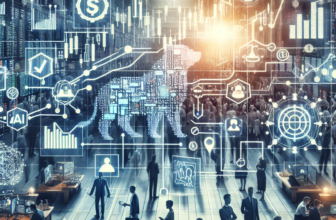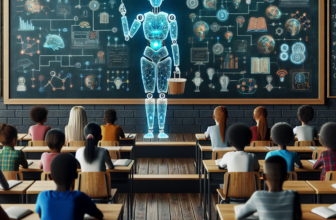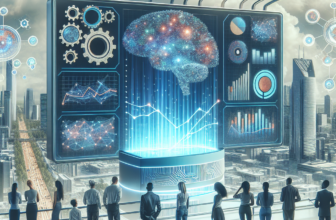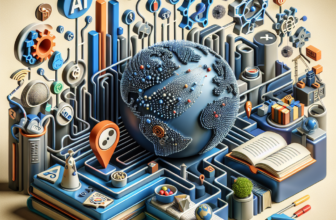Transforming Teaching with AI: Discover the Key Advancements

Transforming Teaching with AI: Discover the Key Advancements
In recent years, the integration of artificial intelligence (AI) in education has opened up a new world of possibilities. AI-driven technologies are transforming teaching and learning experiences by providing personalized, adaptive, and efficient solutions. From virtual tutors to intelligent grading systems, the impact of AI in education is undeniable. In this article, we will explore some key advancements in AI and address frequently asked questions about its implementation in the education sector.
Advancements in AI in Education:
1. Personalized Learning: AI-powered platforms can analyze data on students’ performance, preferences, and learning styles, enabling educators to tailor instruction to individual needs. By providing personalized content and adaptive feedback, AI algorithms help students to grasp concepts more effectively and at their own pace.
2. Intelligent Tutoring Systems: Virtual tutors powered by AI guide students through interactive and engaging lessons. These systems employ natural language processing and machine learning techniques to understand and respond to students’ queries, providing instant feedback and explanations. AI tutors can adapt their teaching strategies based on each student’s progress, ensuring better understanding and retention.
3. Automated Grading: AI technologies can automate the grading process, freeing up teachers’ time to focus on other critical aspects of education. Using machine learning algorithms, these systems can assess assignments, essays, and even handwritten responses, providing consistent and objective evaluations. This not only saves time but also reduces bias and human error in grading.
4. Smart Content Creation: AI tools enable educators to create interactive and engaging learning materials. These tools utilize natural language processing and data analytics to transform textbooks and instructional materials into dynamic digital content. AI algorithms can generate quizzes, simulations, and interactive videos, enhancing students’ learning experiences.
5. Intelligent Learning Analytics: AI-driven learning analytics track students’ progress, attention span, and behavior patterns, offering insights into their learning processes. Educators can identify areas where students struggle and provide targeted interventions. Moreover, AI analytics can identify trends and patterns in large datasets, enabling institutions to make informed decisions regarding curriculum design and resource allocation.
FAQs about AI in Education:
Q: Is AI going to replace teachers?
A: No, AI is not intended to replace teachers but to enhance their effectiveness. AI serves as a powerful tool that supports personalized learning, automates administrative tasks, and provides valuable insights. It enables teachers to focus on higher-order tasks such as critical thinking, creativity, and building relationships with students.
Q: How secure is AI in education?
A: Data security and privacy concerns are essential when implementing AI in education. Educational institutions should ensure compliance with data protection regulations and adopt secure infrastructure for handling student information. It is crucial to partner with trusted AI providers who prioritize data security.
Q: Are AI systems biased?
A: AI systems can inherit biases from the data they are trained on. It is important to ensure that the training data is diverse and representative to minimize biases. Regular audits and updates of AI algorithms are necessary to address any potential biases and ensure equitable outcomes.
Q: What are the ethical considerations of AI in education?
A: Ethical considerations include ensuring data privacy, transparency, and informed consent. Clear communication with students, parents, and educators is necessary to address concerns and establish trust. Educators should also be aware of the limitations of AI and make informed decisions based on their professional expertise.
Conclusion:
The integration of AI in education brings forth immense potential for transforming teaching and learning experiences. From personalized learning to intelligent tutoring systems and automated grading, AI technologies are revolutionizing education. However, it is vital to address concerns related to data security, biases, and ethical considerations. By leveraging the power of AI responsibly, educators can create a future where every student receives personalized education and achieves their full potential.







